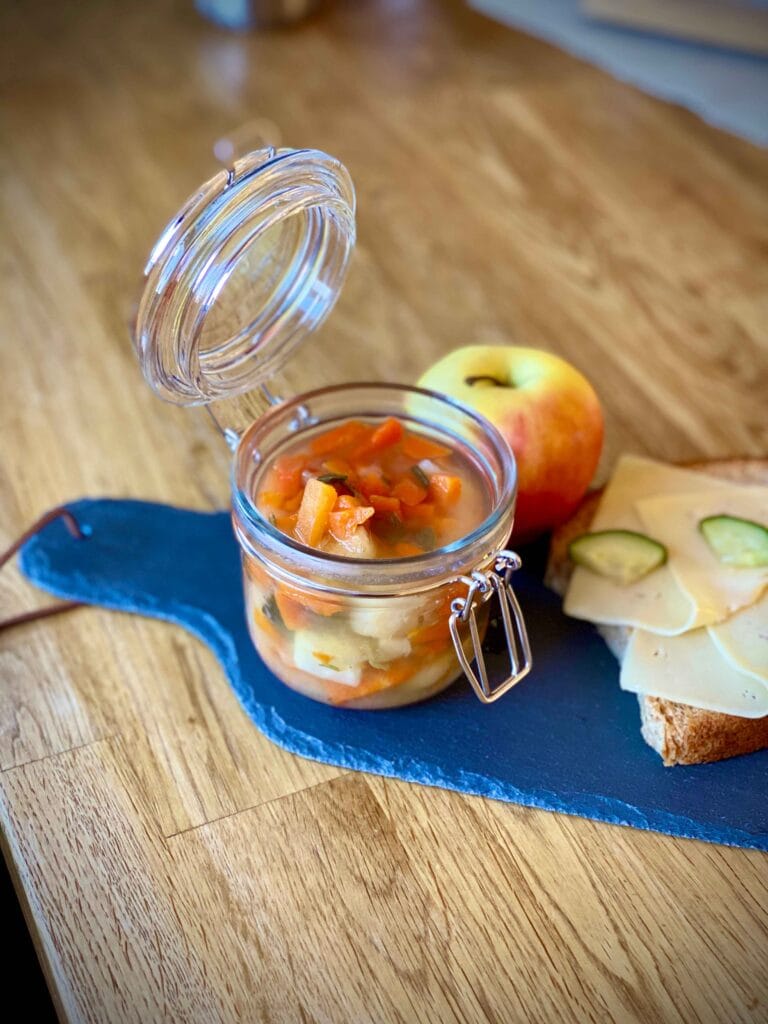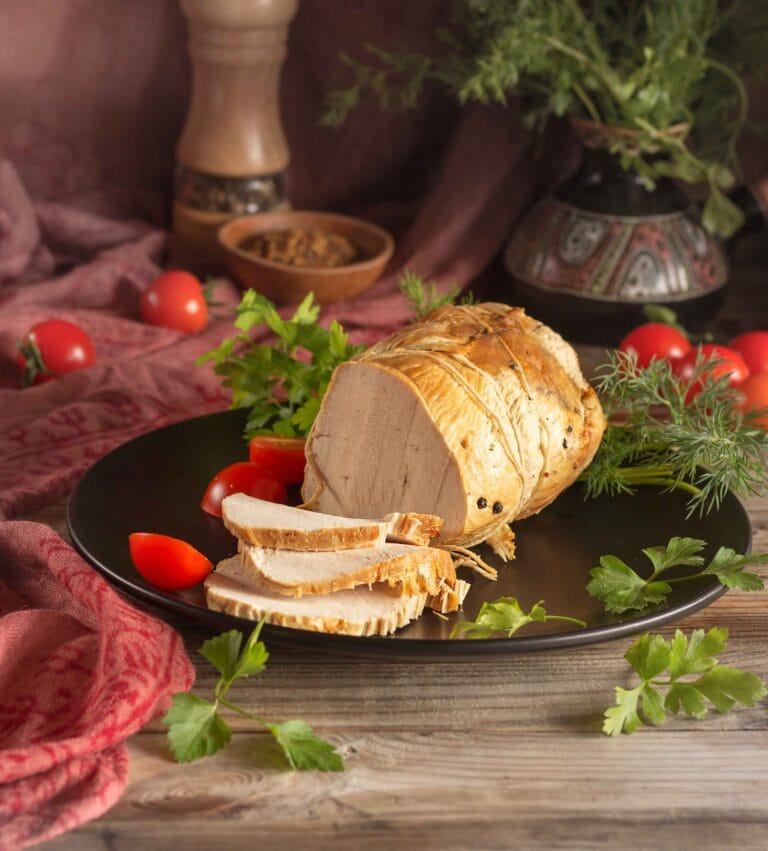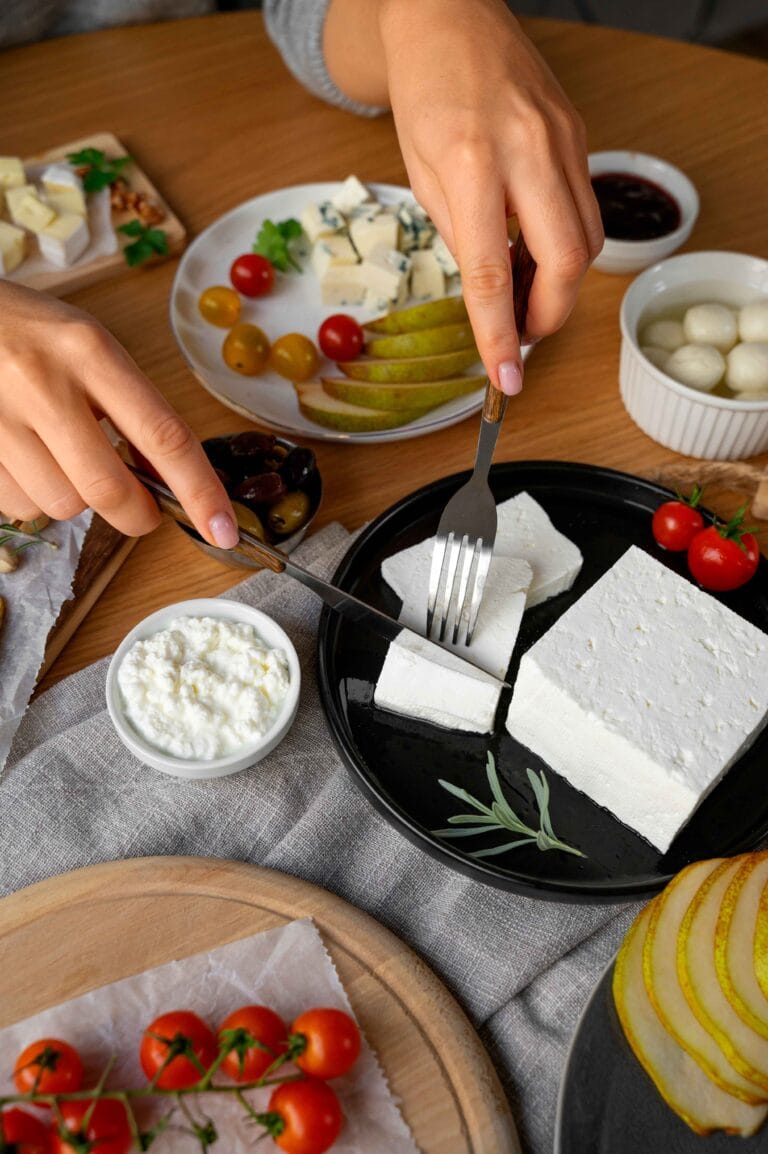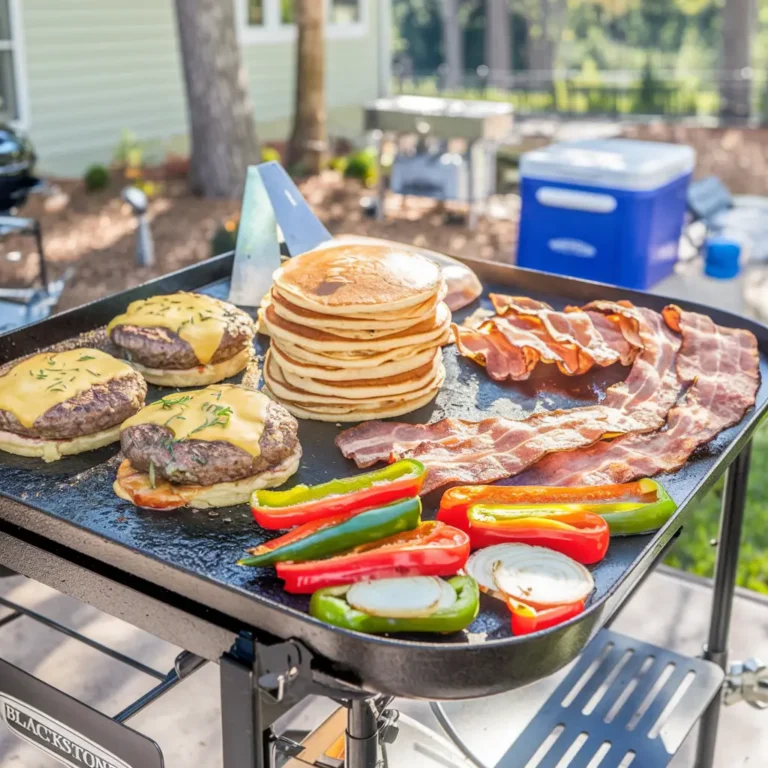Is It Safe to Eat Soup After 7 Days? Expert Storage & Safety Tips
Soup is a comfort food for many, offering a warm, nourishing meal that can be prepared in bulk and enjoyed over several days. However, knowing how long you can safely store soup is crucial to avoid foodborne illnesses. If you’ve ever found yourself staring at a container of soup in the fridge after a week, wondering, “Is this still okay to eat?”—you’re not alone.
The answer depends on several factors, including how the soup was stored, its ingredients, and any visible signs of spoilage. This article will explore everything you need to know about eating soup after 7 days, including storage tips, safety risks, and practical ways to extend its shelf life.
Discover an easy and delicious turkey soup recipe to transform your leftovers into comforting meals.
Understanding Food Safety for Soups
Common Shelf Life of Soups
In general, soups stored in the refrigerator should be consumed within 3-4 days, according to the USDA. While freezing can significantly extend this timeframe, refrigerated soups have a relatively short window due to the growth of bacteria and other pathogens over time.
Factors Affecting Soup Shelf Life
Not all soups are created equal when it comes to storage longevity. Factors such as the type of soup (e.g., cream-based vs. broth-based), ingredients (meat and dairy spoil faster), and storage conditions (temperature and airtightness) play significant roles in determining how long a soup will remain safe to eat.
How Storage Methods Affect Soup’s Longevity
Refrigeration Guidelines
Refrigeration is the most common way to store soup for short-term use. To maintain freshness, soup should be refrigerated within two hours of cooking, as leaving it at room temperature for longer allows bacteria to grow. Ideally, the refrigerator should be set at 40°F (4°C) or lower.
For best results:
- Divide large batches of soup into smaller, shallow containers to cool faster and evenly.
- Avoid stacking containers immediately in the fridge, as this can trap heat and slow cooling.
Even under optimal refrigeration conditions, soups generally last 3-4 days. Consuming soup after 7 days increases the risk of foodborne illness.
Freezing Guidelines
Freezing soup is a reliable way to extend its shelf life significantly, allowing you to store it for 2-6 months without losing quality. Properly frozen soup maintains its taste and nutritional value when reheated.

To freeze soup effectively:
- Allow the soup to cool completely before freezing.
- Use airtight containers or freezer bags to prevent freezer burn.
- Label the containers with the date and type of soup for easy tracking.
- Leave room for expansion as liquids freeze.
When reheating frozen soup, bring it to a boil to ensure any dormant bacteria are destroyed.
The Role of Proper Containers
The type of container used to store soup plays a critical role in its longevity. Airtight, leak-proof containers help prevent contamination and maintain freshness. Glass or BPA-free plastic containers with tight-fitting lids are ideal. Avoid using bowls covered with foil or plastic wrap, as they may not provide a proper seal.
Additionally, opt for freezer-safe containers if planning to freeze the soup. Thin plastic bags or poorly sealed lids can lead to freezer burn, affecting texture and flavor.
Signs Your Soup May Be Unsafe to Eat

Visible Spoilage
One of the most apparent signs of spoiled soup is the presence of mold or discoloration. Mold can appear as fuzzy, green, white, or even black patches on the surface. Other visual indicators include separation of ingredients, such as fat or cream curdling in cream-based soups.
Unusual Smell and Taste
Trust your senses when evaluating soup. If the soup smells sour, musty, or “off,” it’s a clear sign it has spoiled. Similarly, a change in taste, such as a sour or tangy flavor in a broth that originally tasted mild, indicates bacterial activity and spoilage.
Hidden Dangers (Bacteria Growth)
Even if soup looks and smells fine, it can harbor harmful bacteria like Listeria, Salmonella, or Clostridium botulinum. These microorganisms are invisible to the naked eye and can cause severe food poisoning. Always err on the side of caution if you’re unsure about the soup’s safety after 7 days.
Types of Soups and Their Longevity
Cream-Based Soups
Cream-based soups, such as clam chowder or creamy mushroom soup, have a shorter shelf life than broth-based soups. The dairy content in these soups makes them highly perishable. Even in the refrigerator, cream-based soups should ideally be consumed within 2-3 days, as they are prone to curdling and bacterial growth. Freezing cream-based soups can be tricky since the cream may separate during thawing, affecting texture and consistency.
Broth-Based Soups
Broth-based soups, like chicken noodle or vegetable soup, tend to last longer due to their simpler, water-based composition. These soups can typically remain safe for 4-5 days in the refrigerator if stored correctly. They also freeze exceptionally well, retaining their flavor and texture for up to 6 months when frozen.
Soups with Meats and Vegetables
Soups containing meat and cooked vegetables have a slightly shorter shelf life. The meat can develop bacterial contamination more quickly, particularly if it wasn’t cooked to the proper internal temperature of 165°F (74°C) during preparation. These soups should be consumed within 3-4 days when refrigerated. If frozen, soups with meat and vegetables remain safe for a few months, though the vegetables may become mushy upon reheating.
Risks of Eating Soup After 7 Days
Foodborne Illnesses and Symptoms
Eating soup that has been stored for 7 days poses significant risks of foodborne illnesses caused by harmful bacteria. Common culprits include:
- Listeria monocytogenes: This bacteria thrives in cold environments like refrigerators and can cause flu-like symptoms, especially in pregnant women and the elderly.
- Salmonella: Often found in improperly stored soups, Salmonella can lead to nausea, diarrhea, and abdominal cramps.
- Clostridium botulinum: Improperly stored soup may develop botulinum toxin, which can cause life-threatening botulism.
Symptoms of foodborne illness include vomiting, diarrhea, fever, and abdominal pain, which can appear anywhere from hours to days after consumption.
Who Is at Higher Risk?
Certain groups are more vulnerable to the risks of consuming old soup:
- Pregnant Women: More susceptible to Listeria infections.
- Elderly Individuals: Have weaker immune systems, making it harder to fight off bacteria.
- Children: Their smaller bodies and developing immune systems can be overwhelmed by bacterial infections.
- Immunocompromised Individuals: Those with conditions like cancer or diabetes are at higher risk of severe symptoms.
If you belong to one of these groups, it’s best to avoid soup that has been stored for longer than 4 days.
Best Practices for Maximizing Soup Shelf Life
Proper Cooling Techniques
Cooling soup quickly after cooking is critical to preventing bacteria from multiplying. Follow these tips:
- Divide the soup into small, shallow containers to cool evenly.
- Place the containers in an ice bath before transferring them to the refrigerator.
- Avoid leaving soup at room temperature for more than 2 hours.
Labeling and Rotation
Always label your soup containers with the preparation or storage date. This helps you track how long the soup has been in the fridge or freezer. Adopt the FIFO (First In, First Out) method to consume older soups first.
Reheating Guidelines
Reheat soup to an internal temperature of at least 165°F (74°C) to kill any potential bacteria. Use a food thermometer to ensure the proper temperature. Bring the soup to a boil, especially for meat-based or cream-based varieties, to eliminate harmful microorganisms.
Frequently Asked Questions (FAQs)
Is 7-day-old soup safe to eat?
In most cases, soup that has been stored in the refrigerator for 7 days is not safe to eat. The USDA recommends consuming refrigerated soups within 3-4 days to minimize the risk of bacterial contamination. Even if the soup appears and smells fine, harmful bacteria such as Listeria or Salmonella could be present, posing a serious health risk. If you are uncertain about the safety of the soup, it’s better to discard it.
Is homemade soup ok to eat after a week?
Homemade soup, like any other soup, should ideally be consumed within 3-4 days when stored in the refrigerator. After a week, the soup is more likely to harbor bacteria, even if stored in airtight containers. Freezing homemade soup right after cooking is the best way to ensure it remains safe and fresh for longer periods. Proper reheating after freezing will make it safe to eat.
Can you eat soup that is a week old?
Consuming soup that is a week old is risky and not recommended unless it was frozen immediately after cooking. Refrigerated soups are prone to bacterial growth after 4 days. While reheating can kill some bacteria, it won’t eliminate toxins that may have developed, such as those produced by Clostridium botulinum. If the soup was frozen right away, you can safely enjoy it after thawing and reheating.
Turn your leftover turkey into a variety of hearty soups with these easy and flavorful recipes.
How long does it take for soup to go bad?
Soup can go bad in as little as 2 hours if left at room temperature, as bacteria multiply rapidly in the “danger zone” between 40°F (4°C) and 140°F (60°C). Refrigerated soup typically lasts 3-4 days, while frozen soup can remain safe for up to 6 months. Signs that soup has gone bad include mold, unusual odors, changes in texture, and sour or off flavors.
Conclusion
Soup is a versatile and delicious dish, but its storage and safety require careful attention to avoid health risks. While refrigerated soup is safe for up to 4 days, consuming it after 7 days can expose you to harmful bacteria and toxins. Proper cooling, airtight storage, and freezing are essential to maximize its shelf life. When in doubt, it’s always safer to err on the side of caution and discard old soup to prevent foodborne illnesses. Remember, your health is worth more than a bowl of soup!







